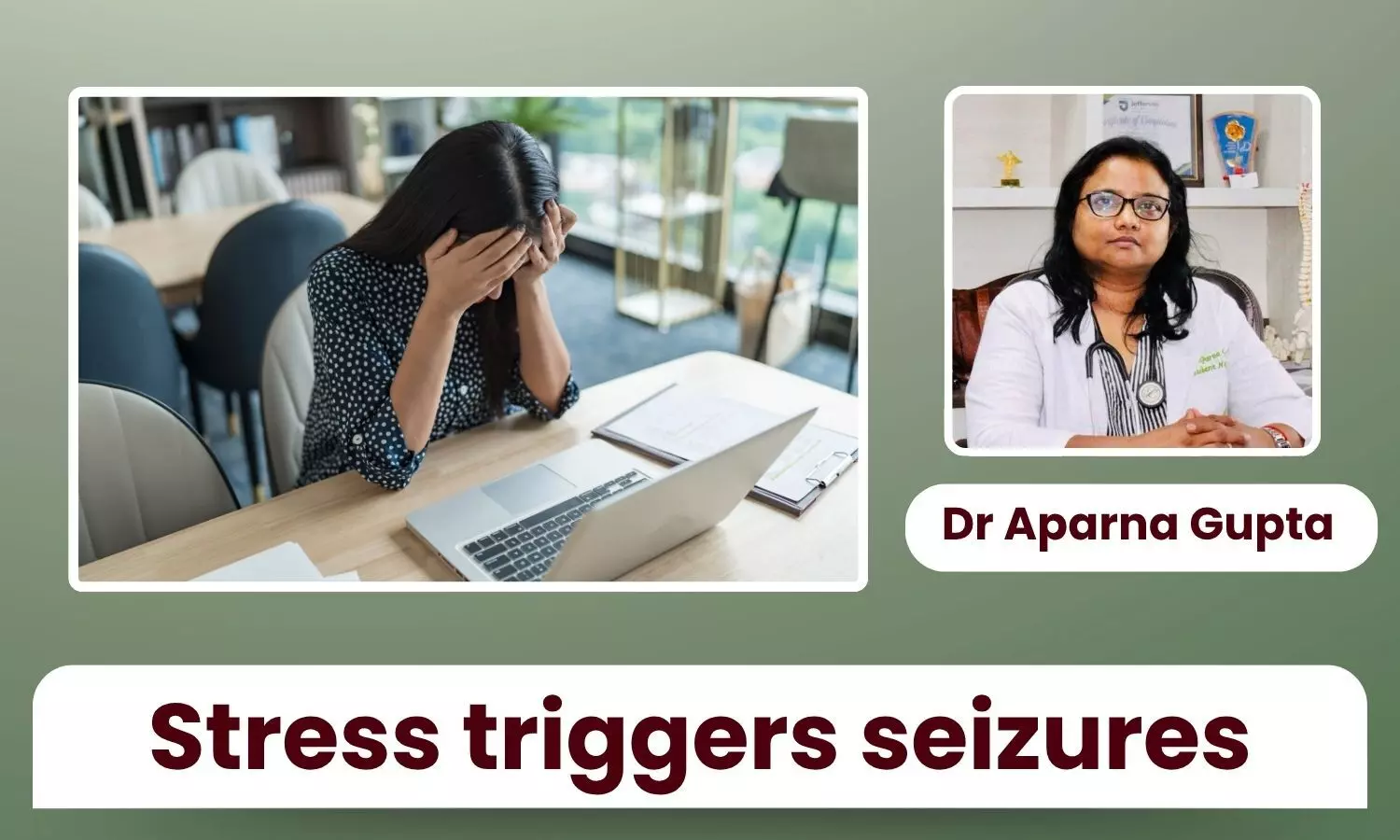Can stress induce epilepsy symptoms? - Dr Aparna Gupta

At my clinic, day in and day out, I have to handle lots of people worn out from stress: work stress, juggling family duties, and struggling to keep pace with the world that never stops.
Of course, it is well known that chronic stress is one cause contributing to headaches, hypertension, and sleep disturbances. However, what most people do not know is that it can play an important role in the onset of such a serious condition as epileptic seizures.
The most frequent question put to me is: "Doctor, can stress actually cause epilepsy?" The answer is complex: high stress alone is unlikely to create the underlying condition of epilepsy in a healthy brain, but it constitutes one of the most common and potent triggers for seizures in someone who has a susceptibility.
It brings us to a very alarming trend, and that is the linking of our modern, high-stress lifestyle and the unmasking of focal epilepsy.
What is Focal Epilepsy?
When most people think of seizures, they think of dramatic full-body convulsions, often depicted in film. It is called a generalised seizure.
Focal epilepsy is different, and often much more subtle. It usually starts in a particular area-a "focus"-of the brain, so the symptoms can be extremely varied and are often mistaken for something else entirely.
The following are common symptoms that my patients usually present with in focal epilepsy:
• A sudden feeling of intense déjà vu-that one has experienced a situation previously.
• An odd, unpleasant smell or taste that is not there
• A period of "zoning out" in which they are unresponsive for several seconds
• Uncontrollable twitching of one arm or one leg
• A sudden strong feeling of fear or anxiety.
As the events are short and internal, many people dismiss the events for long periods of time as simply "a weird feeling," "a panic attack," or that they are overtired.
The Link Between Stress and Seizures
Think of the brain as having a "seizure threshold ", a breaking point. In someone with epilepsy, his or her threshold is lower.
Now consider the reality of living your life on a 24/7 basis. What does a high-stress lifestyle mean? It means:
• Poor sleep is the number one seizure trigger
• Mental and emotional exhaustion
• Missing a dose, or not taking your meds correctly
It all adds up-these are the weights that press down on that seizure threshold. Thus, excitatory hormones, one of which is cortisol, get charged through the brain, building further excitation and vulnerability. This "perfect storm" of stress and fatigue is often what finally breaks the threshold in someone with underlying focal epilepsy and drives them to seizure.
That's why we're "seeing a rise." That doesn't mean it's a new epidemic; it's just that our modern life is creating some kind of conflict, exposing an underlying vulnerability that might have been otherwise dormant in a steadier, slower-paced world.
What You Can Do
First of all, listen to your body. If you or someone you love has frequent, inappropriate sensations, particularly when tired, tense, or stressed, listen to those sensations and do not discount that information.
It is not "all in your head," and it is decidedly not weakness. It is a real human biological signal from your brain that something needs attention.
Getting a handle on this isn't about eliminating stress altogether-which is impossible-really, it's about managing your response.
• Sleep is everything. The healthy brain has to have sleep first, and that is not negotiable.
• Try mindfulness or meditation as a method of helping your body manage the stress response.
• Eat regular meals to keep yourself hydrated.
• You may want to consider speaking with a professional. A neurologist will be better placed to interpret symptoms.
We live in a stressful world, but understanding how our body responds is the first step toward getting control back. If you have concerns, please seek help.
Disclaimer: The views expressed in this article are of the author and not of Health Dialogues. The Editorial/Content team of Health Dialogues has not contributed to the writing/editing/packaging of this article.


